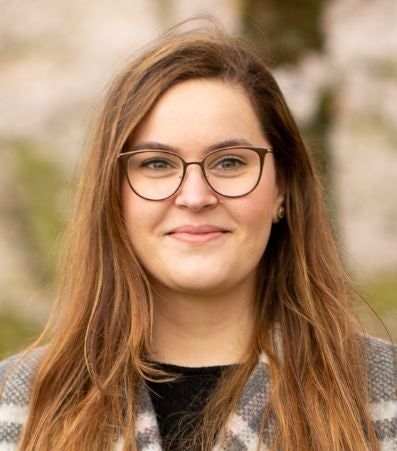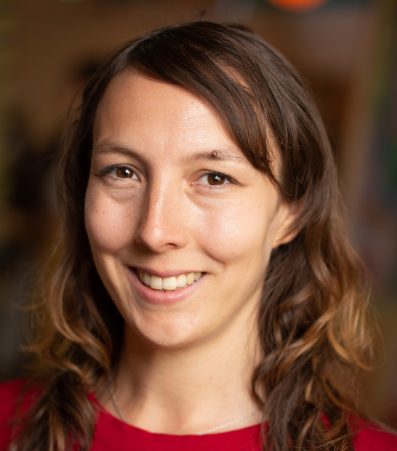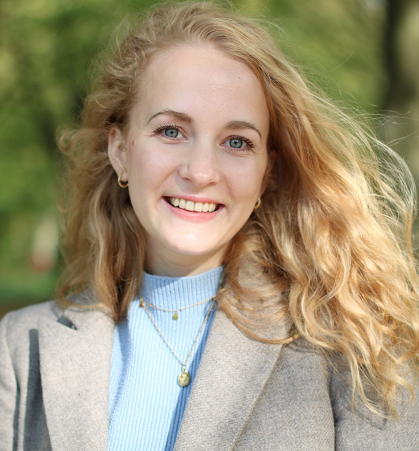Then the Master’s in Drug Discovery Sciences is the programme for you. Check whether you meet the admission requirements and find out how to apply.
Create new medicines from a chemical perspective
Check if you meet the admission requirements
-
I have a VU Bachelor's degree in Pharmaceutical Sciences (Farmaceutische Wetenschappen)
Applicants who have or are expected to successfully complete their BSc Pharmaceutical Sciences (Farmaceutische Wetenschappen) at VU are automatically granted entry to the programme. You should carefully consider the admission requirements per specialisation and how your lab work and bachelor’s thesis support this.
-
I have another Dutch university level (WO) bachelor's degree
The Master’s programme in Drug Discovery Sciences is open to students with a Dutch Bachelor’s degree from a programme comparable to Pharmaceutical Sciences at Vrije Universiteit Amsterdam. Review the admission matrix below to check whether your education fulfils the requirements. A Bachelor’s degree in Pharmacy is not considered equivalent to a Bachelor’s degree in Pharmaceutical Sciences.
All applicants must:
- have completed a Bachelor’s programme that provides the required knowledge base (see admission matrix below for more information).
- have practical laboratory experience relevant for your chosen specialisation.
- have research experience relevant for your chosen specialisation.
All applicants must have sufficient knowledge of the English language (equivalent to the Dutch VWO examination level).
Each specialisation has different requirements:
- Design and Synthesis in Drug Discovery requires completion of a Bachelor’s programme focused on general chemistry, physical chemistry and organic chemistry.
- Pharmacology and Toxicology in Drug Discovery requires completion of a Bachelor’s programme focused on biochemistry and enzyme kinetics supported by knowledge of general chemistry.
- Bioanalytics in Drug Discovery requires completion of a Bachelor’s programme focused on general chemistry, enzyme kinetics and analytical chemistry.
- Education in Drug Discovery requires completion of a Bachelor’s programme and sufficient knowledge of general chemistry together with sufficient Dutch language proficiency evidenced by NT2-II, ITN, CNaVT (EDUP C1 or SRTR B2), a Dutch VWO diploma with a pass in Dutch, or an accepted Dutch-language higher education degree.
Completing the minor Pharmaceutical Sciences at Vrije Universiteit Amsterdam is highly recommended for all specialisations, including the educational variant, as it provides relevant knowledge that will strengthen your application to the Master’s programme.
Admission matrix
The entry matrix below specifies the prior knowledge expected for each specialisation. This matrix serves as a guideline; the final decision on the suitability of your degree is made by the Admissions Board.1. General chemistry 2. Bio- chemistry 3. Enzyme kinetics 4. Organic chemistry 5. Physical chemistry 6. Analytical chemistry Design and Synthesis in Drug Discovery x x x Pharmacology and Toxicology in Drug Discovery x x x Bioanalytics in Drug Discovery x x x Education in Drug Discovery x Required knowledge for the different specialisations:
- General chemistry: topics include chemical bonding, acid-base, buffers, equilibria, functional groups, molecular recognition, organic-chemical and biochemical structures (including amino acids, nucleotides, and sugars), energy/thermodynamics, redox chemistry, solubility, and chemical kinetics. An indication of the expected knowledge is given by the textbook Chemical Principles (Zumdahl/Coste), chapters 1-15.
- Biochemistry: topics include molecular biology, cell biology and pharmacology, including techniques such as protein expression, purification, and mutagenesis. An indication of the expected knowledge is given by the textbooks Essential Cell Biology (Alberts et al.), chapters 1-16, and Introduction to Medicinal Chemistry (Patrick), chapters 1-18.
- Enzyme kinetics: topics include pharmacokinetics, metabolism, and pharmaceutical toxicology. An indication of the expected knowledge is given by the textbook Pharmacology (Rang & Dale), chapters 1-11 and Biochemistry (Stryer), chapters 14-20.
- Organic chemistry: an indication of the expected knowledge is given by the textbook Organic Chemistry (Clayden et al.), chapters 1-30.
- Physical chemistry: an indication of the expected knowledge is given by the textbook Physical Chemistry for the Life Sciences. Peter Atkins and Julio de Paula, chapters 1-4.
- Analytical chemistry: topics include HPLC, spectroscopy, NMR, and mass spectrometry. An indication of the expected knowledge is given by the textbook Quantitative Chemical Analysis (Harris), chapters 1-10, 17-25.
-
I have a Dutch higher vocational education (HBO) Bachelor’s degree
The Master’s programme in Drug Discovery Sciences is open to students with an HBO Bachelor’s degree from a programme comparable to Pharmaceutical Sciences at Vrije Universiteit Amsterdam. As an HBO graduate, you are not required to take a pre-master’s assessment for admission to the Master’s programme in Drug Discovery Sciences. Instead, the admission board will judge your admissibility based on your transcript.
All applicants must:
- have completed an HBO Bachelor’s programme that provides the required knowledge base (see admission matrix below for more information).
- have practical laboratory experience relevant for your chosen specialisation.
- have research experience relevant for your chosen specialisation.
All applicants must have sufficient knowledge of the English language (equivalent to the Dutch VWO examination level). Students with a HBO degree (in Dutch) must take an English Language Test. You can also submit the result of the English language test after you have been conditionally accepted, the deadline for submitting the test result is August 31st. Please send a scan of your test result to toelating.beta@vu.nl.
Each specialisation has different requirements:
- Design and Synthesis in Drug Discovery requires completion of an HBO Bachelor’s programme focused on general chemistry, physical chemistry and organic chemistry.
- Pharmacology and Toxicology in Drug Discovery requires completion of an HBO Bachelor’s programme focused on general chemistry, biochemistry and enzyme kinetics.
- Bioanalytics in Drug Discovery requires completion of an HBO Bachelor’s programme focused on enzyme kinetics and analytical chemistry supported by knowledge of general chemistry.
- Education in Drug Discovery requires completion of an HBO Bachelor’s programme and sufficient knowledge of general chemistry together with sufficient Dutch language proficiency evidenced by NT2-II, ITN, CNaVT (EDUP C1 or SRTR B2), a Dutch VWO diploma with a pass in Dutch, or an accepted Dutch-language higher education degree.
Completing the minor Pharmaceutical Sciences at Vrije Universiteit Amsterdam is highly recommended for all specialisations, including the educational variant, as it provides relevant knowledge that will strengthen your application to the Master’s programme.
Admission matrix
The entry matrix below specifies the prior knowledge expected for each specialisation. This matrix serves as a guideline; the final decision on the suitability of your degree is made by the Admissions Board.1. General chemistry 2. Bio- chemistry 3. Enzyme kinetics 4. Organic chemistry 5. Physical chemistry 6. Analytical chemistry Design and Synthesis in Drug Discovery x x x Pharmacology and Toxicology in Drug Discovery x x x Bioanalytics in Drug Discovery x x x Education in Drug Discovery x Required knowledge for the different specialisations:
- General chemistry: topics include chemical bonding, acid-base, buffers, equilibria, functional groups, molecular recognition, organic-chemical and biochemical structures (including amino acids, nucleotides, and sugars), energy/thermodynamics, redox chemistry, solubility, and chemical kinetics. An indication of the expected knowledge is given by the textbook Chemical Principles (Zumdahl/Coste), chapters 1-15.
- Biochemistry: topics include molecular biology, cell biology and pharmacology, including techniques such as protein expression, purification, and mutagenesis. An indication of the expected knowledge is given by the textbooks Essential Cell Biology (Alberts et al.), chapters 1-16, and Introduction to Medicinal Chemistry (Patrick), chapters 1-18.
- Enzyme kinetics: topics include pharmacokinetics, metabolism, and pharmaceutical toxicology. An indication of the expected knowledge is given by the textbook Pharmacology (Rang & Dale), chapters 1-11; Biochemistry (Stryer), chapters 14-20.
- Organic chemistry: an indication of the expected knowledge is given by the textbook Organic Chemistry (Clayden et al.), chapters 1-30.
- Physical chemistry: an indication of the expected knowledge is given by the textbook Physical Chemistry for the Life Sciences. Peter Atkins and Julio de Paula, chapters 1-4.
- Analytical chemistry: topics include HPLC, spectroscopy, NMR, and mass spectrometry. An indication of the expected knowledge is given by the textbook Quantitative Chemical Analysis (Harris), chapters 1-10, 17-25.
-
I have an international degree
The Master’s programme in Drug Discovery Sciences is open to international students with a Bachelor’s degree from a programme comparable to Pharmaceutical Sciences at Vrije Universiteit Amsterdam *. A Bachelor’s degree in Pharmacy is not considered equivalent to a Bachelor’s degree in Pharmaceutical Sciences.
Admission requires a Bachelor’s degree from an accredited research university, including at least three full years of academic study and a minimum of 180 ECTS (or equivalent). A GRE or GMAT test score is not required.
* Review the admission matrix below to check whether your education fulfils the requirement.
All applicants must:
- have completed a Bachelor’s programme that provides the required knowledge base (see admission matrix below for more information).
- have practical laboratory experience relevant for your chosen specialisation.
- have research experience relevant for your chosen specialisation.
All applicants must have sufficient knowledge of the English language:
You will have to demonstrate sufficient English language proficiency. You can find an overview of relevant information to demonstrate your English language proficiency on the language requirement page.
Each specialisation has different requirements:
- Design and Synthesis in Drug Discovery requires completion of a Bachelor’s programme focused on general chemistry, physical chemistry and organic chemistry.
- Pharmacology and Toxicology in Drug Discovery requires completion of a Bachelor’s programme focused on biochemistry and enzyme kinetics supported by knowledge of general chemistry.
- Bioanalytics in Drug Discovery requires completion of a Bachelor’s programme focused on general chemistry, enzyme kinetics and analytical chemistry.
- Education in Drug Discovery requires completion of a Bachelor’s programme and sufficient knowledge of general chemistry together with sufficient Dutch language proficiency evidenced by NT2-II, ITN, CNaVT (EDUP C1 or SRTR B2), a Dutch VWO diploma with a pass in Dutch, or an accepted Dutch-language higher education degree.
Admission matrix
The entry matrix below specifies the prior knowledge expected for each specialisation. This matrix serves as a guideline; the final decision on the suitability of your degree is made by the Admissions Board.
1. General chemistry 2. Bio- chemistry 3. Enzyme kinetics 4. Organic chemistry 5. Physical chemistry 6. Analytical chemistry Design and Synthesis in Drug Discovery x x x Pharmacology and Toxicology in Drug Discovery x x x Bioanalytics in Drug Discovery x x x Education in Drug Discovery x Required knowledge for the different specialisations:
- General chemistry: topics include chemical bonding, acid-base, buffers, equilibria, functional groups, molecular recognition, organic-chemical and biochemical structures (including amino acids, nucleotides and sugars), chemical structures, energy/thermodynamics, redox chemistry, solubility and chemical kinetics. An indication of the expected knowledge is given by the textbook Chemical Principles (Zumdahl/Coste), chapters 1-15.
- Biochemistry: topics include molecular biology, cell biology and pharmacology, including techniques such as protein expression, purification and mutagenesis. An indication of the expected knowledge is given by the textbooks Essential Cell Biology (Alberts et al.), chapters 1-16, and Introduction to Medicinal Chemistry (Patrick), chapters 1-18.
- Enzyme kinetics: topics include pharmacokinetics, metabolism, and pharmaceutical toxicology. An indication of the expected knowledge is given by the textbook Pharmacology (Rang & Dale), chapters 1-11 and Biochemistry (Stryer), chapters 14-20.
- Organic chemistry: an indication of the expected knowledge is given by the textbook Organic Chemistry (Clayden et al.), chapters 1-30.
- Physical chemistry: an indication of the expected knowledge is given by the textbook Physical Chemistry for the Life Sciences (Peter Atkins and Julio de Paula), chapters 1-4.
- Analytical chemistry: topics include HPLC, spectroscopy, NMR, and mass spectrometry. An indication of the expected knowledge is given by the textbook Quantitative Chemical Analysis (Harris), chapters 1-10, 17-25.
Check how to apply
-
I have a Dutch degree
The Drug Discovery Sciences programme is open to both Dutch and International Students. The Faculty’s Admission Board will decide upon your admission after having evaluated your complete online application. You find all information about the general application procedure with a Dutch degree on the application page.
Use this form to apply for the Master’s: Application form Master's DDS.
The application deadline is:
1 June for holders of a Dutch bachelor’s degree (with a Dutch or EU/EEA nationality).
-
I have an international degree
Application documents
To apply you are required to provide the following documents:
- Scan of your passport or national ID card (ID for EEA students only) valid at the start date of the programme
- Master Application File please download the correct file from this page. In this file you can see which documents are required to apply for your programme.
- Proof of English language proficiency (if already obtained): upload your proof of English language proficiency or English language test results. Please find the English language requirements here.
After having prepared the required documents, please follow the online application procedure.
Application fee & deadlines
All students seeking admission to an international Master’s programme with an international degree are required to pay a non-refundable €100 application fee. Only after you have paid this fee will we be able to start the evaluation of your application file. If you are applying for more than one programme, you will only need to pay the application fee once. Your application fee payment is valid for two years.
Information on how to apply with an international university degree and deadlines can be found here.Grants and scholarships
As an international student planning to study at Vrije Universiteit Amsterdam, you can apply for a variety of grants and bursaries. Detailed information about scholarships and deadlines can be found on www.vu.nl/scholarships or www.grantfinder.nl.
International Student and Alumni Ambassadors
Our International Student and Alumni Ambassadors are happy to tell you all about their experiences with studying at VU Amsterdam and living in Amsterdam.
- Our Student Ambassadors are current students at VU Amsterdam that represent a wide variety of programmes and countries.
- Our International Alumni Ambassadors are VU Amsterdam graduates who are currently either working in the Netherlands or abroad, or doing a PhD or (second) Master's.
You will find the full overview of our Ambassadors here: vu.nl/ambassadors. There you can chat with them directly.
Want to know more?
Don't hesitate to contact us!



